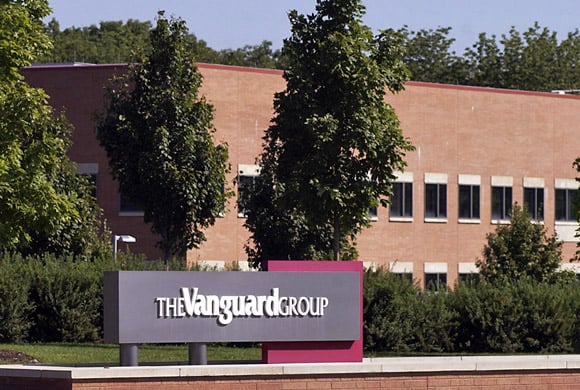The Vanguard Group Inc. is moving its LifeStrategy funds line-up to an all-indexed approach, changing strategies for a quartet of funds that now use a mix of passive and active management.
The four funds of funds, with $25 billion in assets, include the growth fund (an 80%-20% stock and bond allocation), the moderate growth fund (60% stocks and 40% bonds) and the conservative growth fund (40% stocks and 60% bonds. There is also an income fund, which is 20% invested in equities and the rest bonds.
The move will knock two to four basis points off of the funds' expense ratios, bringing them down to a range of 0.14% to 0.18%. Until the transition goes through, however, the costs will remain between 0.18% and 0.20%.
As part of the strategy, the four funds will gradually cut their exposure to underlying actively managed funds, which include the Vanguard Asset Allocation and the Vanguard Short-Term Investment Grade funds. Instead, they'll invest only in Vanguard's Total Stock Market Index, Total International Stock Index and Total Bond Market II Index funds.
On the surface, Vanguard's change might seem similar to
BlackRock Inc.'s move this summer to launch an indexed version of its LifePath target date series. BlackRock's changes were aimed at bringing the indexed strategy applied to its collective trust funds — which are aimed at larger plans — to smaller funds.
In Vanguard's case, however, the revamp squares the firm's target risk offerings with its target date funds and other index-based products it provides globally, said John Ameriks, a principal at Vanguard.
Clients, including plan sponsors, are likely to applaud a reduction in cost — as well as the migration to indexing — as expenses become a focal point in upcoming enhanced fee disclosure.
“We've seen that plan sponsors are really focusing on having the basics covered in terms of broad-based indexed funds,” Mr. Ameriks said. “Our focus is more on low-cost rather than indexed investing.”
Of the increased focus on indexed offerings, he added: “Hopefully, this isn't a trend or a fad, but something more permanent and an aspect of risk control — being careful of how you take active management risk.”







